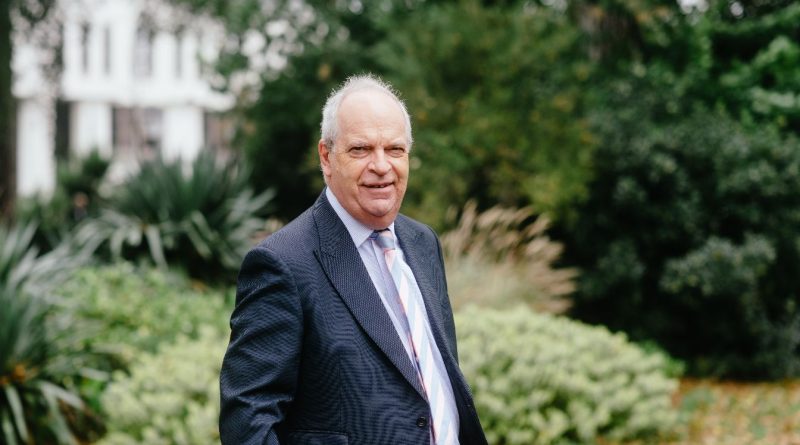Mixed reaction to ‘rich getting richer’ mini-budget
By The Editor
WITH reaction to Kwasi Kwarteng’s tax-cutting mini-budget dividing opinion across party lines this week, the reaction to measures that benefit high earners more than the least well off has been lukewarm in Gosport and Fareham.
According to Labour politicians, the Truss government’s refusal to impose a windfall tax on excess profits made by energy companies will leave future generations picking up the bill for the current, unprecedented cost of living crisis.
But Tories say reducing the revenue burden and lifting the cap on bonuses paid to wealthy bankers is essential for economic growth, job creation and future prosperity.
Locally, workers on an average annual salary of £30,000 would be £392 better off due to changes in National Insurance and income tax. However, the boost to take-home pay for someone in the £100,000 a year bracket is £1,4700 better off. And that mini budget bonus increases dramatically to £5,220 for anyone grossing £200,000.
Meanwhile, despite Conservative claims that everyone will be better off because of the Chancellor’s radical financial restructuring, pensioners not on benefits will get nothing.
There was a cautious welcome to Mr Kwarteng’s announcement from Hampshire Chamber, the body that represents the commercial interests of businesses across the region.
Stability
President Peter Taylor said: “There is a pressing need for business growth to provide economic stability and revenues for the public purse in the longer term.
“Our members will welcome a number of the pro-growth measures announced by the Chancellor, especially the reversal of Corporation Tax and National Insurance rises, but we will have to wait and see if he has done enough overall to release the wave of investment we need at a time when we have the highest inflation rate for decades.
“The mini-budget came just a day after another interest rate rise, which only increases borrowing costs, and a dramatic intervention to cap record high energy prices. At this critical point, we can only hope the Chancellor has got the balance right between tax cuts, spending commitments and the need for more government borrowing to finance his strategy.”
Estate agents are pleased with the changes to Stamp Duty which, they say, mean:
- Raising the threshold of how much a property has to cost before Stamp Duty is payable. This figure has gone up from £125,000 to £250,000.
- Helping first-time buyers. They will now pay no Stamp Duty on the first £425,000 of property value, a rise from £300,000.
- Raising the value of property on which first-time buyers can claim relief, from £500,000 to £625,000.
Neil Shaw, Director of Chinneck Shaw, which covers the Portsmouth area, said: “As we saw in the summer of 2020 during the Covid-19 pandemic, the raising of the Stamp Duty threshold can have a very positive impact on activity in the property market.
Challenging
“Two years ago, the move to cut duty encouraged the resumption of homebuying in what was a difficult and challenging period. The Stamp Duty ‘holiday’ prompted many more sales and transactions than there might otherwise have been.
“Fast forward to now and a new Chancellor has announced a similar move in what is also a highly uncertain time in the economy characterised by the highest inflation rate in decades and emergency government intervention to combat rising energy costs.
“Kwasi Kwarteng has said he believes these measures will collectively take 200,000 people out of the need to pay Stamp Duty altogether.
“While in the past, Stamp Duty ‘holidays’ can lead to property prices going up because of the growth in demand they encourage, we believe big rises are unlikely on this occasion. That is because rising interest rates, including their impact on variable rate mortgages, will act as a restraint on affordability along with the other cost of living pressures people are facing. However, we welcome the new Stamp Duty measures nonetheless as a means of maintaining market confidence and growth.”
Less impressed was Morgan Vine, Head of Policy and Influencing at national older person’s charity Independent Age, who said: “For people on the lowest incomes, including the millions of older people already facing real financial hardship, the mini-budget has offered little in the way of reassurance.
Deterioration
“Many will still find themselves skipping meals or sitting in a cold, dark home this winter, resulting in significant deterioration of their quality of life, health and potentially leading to more deaths.
“To truly make this a budget for all who are struggling, the government must urgently review support for people in later life. The freeze on energy bills will give some breathing space, but there is still a significant gap when it comes to the financial pressures older people are experiencing.
“More must be done to support older people living in, or on the edge of, poverty. It is critical in the next two years that the triple lock is maintained and uprated by inflation, alongside the uprating of Pension Credit.”
Also responding to the Kwarteng Fiscal Statement, Carers Trust CEO Kirsty McHugh said: “Millions of unpaid carers are being plunged into poverty, or facing extreme financial pressure, because of the extra costs of their caring role. Despite the critical role unpaid carers play in propping up a creaking health and social care system by caring for family members and friends, yet again they have been let down by the UK government.
“The Energy Bill Relief Scheme will only be short-term support for the independent local carers charities in the Carers Trust Network who desperately need a decrease in energy bills, so that they can spend their funds to support unpaid carers in their communities.
Unpaid
“The cancelling of the Health and Social Care Levy is yet another blow – even though it was unclear when social care, and unpaid carers, would benefit from that levy. There remains a gaping hole in the social care investment needed, leaving unpaid carers without the support they desperately need, like breaks.
“Where is the leadership on the issues facing unpaid carers?
“The announcements from the UK government this week show there is still no real strategy that will support the NHS and social care, and unpaid carers and the services that help them.”
PICTURED: Hampshire Chamber President Peter Taylor, who hopes Chancellor Kwasi Kwarteng has “got the balance right”



